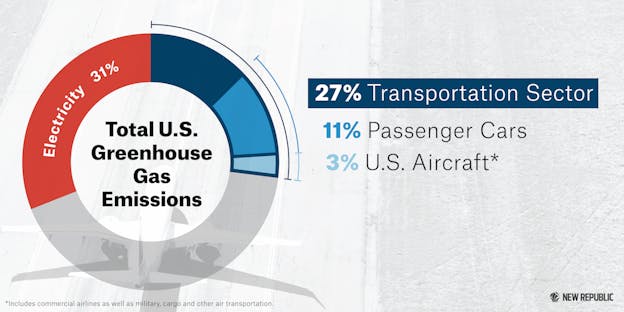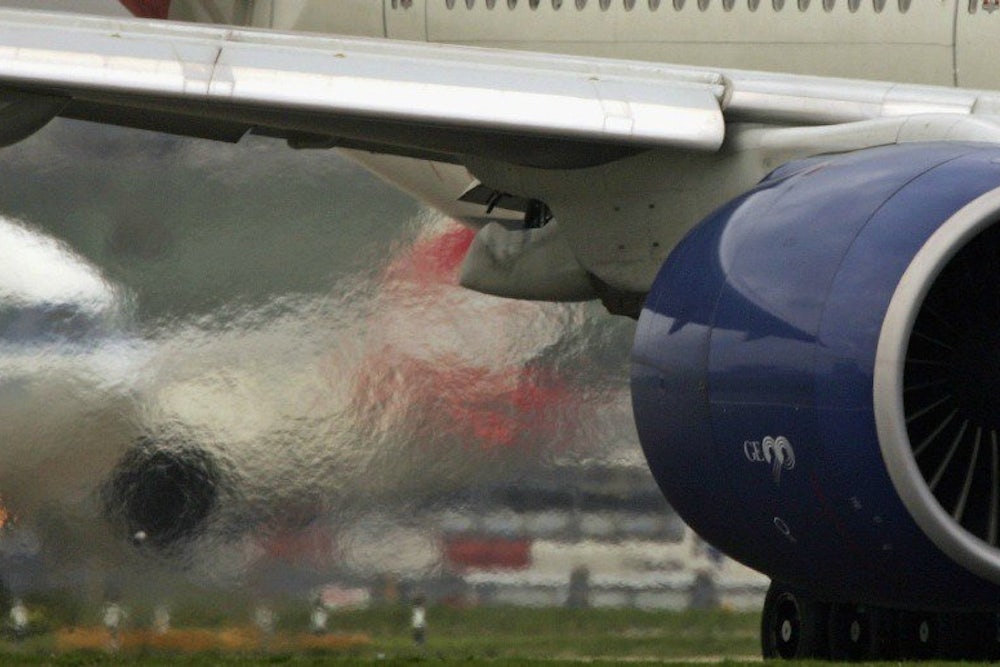The Obama administration is running down its list of the remaining polluting sectors it has left to tackle to deliver on the president's climate change promises. Already, Obama's Environmental Protection Agency has looked at pollution from many of the country's biggest offenders: power plants, cars, trucks, agriculture, and more.
The EPA is expected to announce as soon as Friday that it's taking the first major step to require emissions cuts from the aviation sector—the largest remaining unregulated source in the U.S. Before the EPA can issue any regulations, it must issue an “endangerment finding” that pollution from aircraft poses a risk to human health. The agency followed the same process for power plants and cars, as required by the Clean Air Act. The next step will be drawing up a draft proposal that targets pollution from commercial flights, a process that will take another few years to finish. The next administration will likely issue the final version.
Compared to power plants and passenger cars, airplanes make up a relatively small portion of U.S. pollution. According to EPA data, commercial flights account for 3 percent of U.S. greenhouse gas emissions.

Even within the transportation sector, commercial travel makes up a smaller portion of emissions. Passenger cars are the largest offenders—accounting for 60 percent of the carbon—while medium and heavy trucks account for a fourth of emissions (23 percent). Airplanes are responsible for just over 6 percent of transportation sector emissions, and 11 percent including small aircraft and military flights.
But with demand for air travel on the rise worldwide, this rule could help control global aviation emissions. A strong regulation has the potential to reduce global emissions, since the U.S. accounts for 29 percent of the sector's greenhouse gasses worldwide. Or, it could be too weak, and largely let airlines off the hook for their pollution.
Obama isn't done with his climate change regulations just yet. Next week, the EPA is expected to publish a draft rule raising fuel economy standards for heavy trucks (tractor trailers, busses, and garbage trucks) up to 40 percent by 2027 (tractor trailers average just 5 miles per gallon of diesel fuel right now). Obama has already raised fuel economy standards for passenger cars, so they reach 54.5 mpg by 2025.
It's debatable whether some of these regulations, including requirements for power plants, oil and gas, and agriculture, are strong enough to make a serious dent in the U.S.'s climate footprint. But the fact remains: Obama’s tackled an unprecedented number of climate-change offenders. A Republican-controlled Congress may have forced Obama to take a piecemeal approach to climate change, but his executive actions are beginning to add up to a comprehensive strategy.
